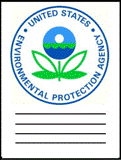United States Environmental Protection Agency

United States Environmental Protection Agency: Publications
Document Type
Article
Date of this Version
2017
Citation
BIRTH DEFECTS RESEARCH 00:00–00 (2017)
Abstract
Background: ATP binding cassette sub-family member 2 (ABCG2) is a welldefined efflux transporter found in a variety of tissues. The role of ABCG2 during early embryonic development, however, is not established. Previous work which compared data from the ToxCast screening program with that from in-house studies suggested an association exists between exposure to xenobiotics that regulate Abcg2 transcription and differentiation of mouse embryonic stem cells (mESC), a relationship potentially related to redox homeostasis.
Methods: mESC were grown for up to 9 days. Pharmacological inhibitors were used to assess transporter function with and without xenobiotic exposure. Proliferation and differentiation were evaluated using RedDot1 and quantiative reverse transcriptase-polymerase chain reaction, respectively. ABCG2 activity was assessed using a Pheophorbide a-based fluorescent assay. Protein expression was measured by capillary-based immunoassay.
Results: ABCG2 activity increased in differentiating mESC. Treatment with K0143, an inhibitor of ABCG2, had no effect on proliferation or differentiation. As expected, mitoxantrone and topotecan, two chemotherapeutics, displayed increased toxicity in the presence of K0143. Exposure to K0143 in combination with chemicals predicted by ToxCast to regulate ABCG2 expression did not alter xenobiotic-induced toxicity. Moreover, inhibition of ABCG2 did not shift the toxicity of either tert-Butyl hydroperoxide or paraquat, two oxidative stressors.
Conclusion: As previously reported, ABCG2 serves a protective role in mESC. The role of ABCG2 in regulating redox status, however, was unclear. The hypothesis that ABCG2 plays a fundamental role during mESC differentiation or that regulation of the receptor by xenobiotics may be associated with altered mESC differentiation could not be supported.
Included in
Earth Sciences Commons, Environmental Health and Protection Commons, Environmental Monitoring Commons, Other Environmental Sciences Commons


Comments
U.S. government work.